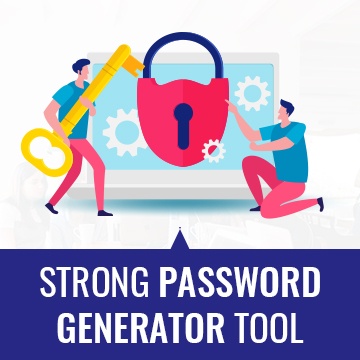WAYS TO PROTECT YOUR PASSWORDS FROM IDENTITY THEFT ONLINE

Identity Theft has seen a sharp rise since the early 2000s when the phishing scams were relatively new and played on the naivety of the internet user. As we draw to a close of 2020, identity Theft is still as widespread as before. Only now, scammers have come up with creative and subtle ways to rob people of their online identities.
What Is Identity Theft?
Simply put, the use of your sensitive information like your credit or debit card numbers, usernames or email addresses and passwords, banking information and social security numbers for fraudulent and illegal purposes by any individual or corporation, is called an Identity Theft.
Each year, more than 50 million identities get stolen online and are used for illegal online purchases or sales, transactions and logins. The implication of this is huge as althoughunwittingly, you are presented as the defaulter and the face behind which the real cyber-criminals hide their tracks.
How Are Identities Stolen?
The easiest reason would be carelessness- whether it is your misplaced cards or easy-to-crack passwords. Phishing scams also tend to reel in innocent and rather ignorant web surfers who get caught in the net and lose their privacy to hackers. Anytime you input your password at a website that is not secured, you run a high risk of having your private information copied to the hacker's server and might have to lose a lot of money to restore it.
Protecting Your Identity
Protection is always a good idea in the cyber world. It doesn’t let you just dip your toes in; it rather sucks you whole like quicksand and soon enough, you wonder which website it was that took you down the wrong path. Listed below are some ways you can make sure that your private information is protected from scammers and malignant entities:
· Security Software
Even though you might consider it an expense, security software for your smartphone and laptop or PC works more like an investment. It is the first and strongest barrier between you and phishing sites and actually filters out more than half the threats without even letting you know. Invest in a strong, well-reviewed security software for all your online devices for the entry-level, tangible protection.
· Recognise Scams For What They Are
That cruise the website claims that you won? Probably a scam. That million-dollar lottery the bright online banner is offering you? Another scam. Sometimes even the free psychic reading that the websites offer you turn out to be scams to goad you into entering your sensitive information. Learn to recognisethe signs of scams and phishing sites to avoid them altogether. Emails that you 'sense' might be wrong are definitely wrong. Trust us.
· Strength In Passwords
Passwords are literal keys into your accounts and information. Your passwords need to be strong- a unique combination of Upper Case and Lower Case Alphabets, Numbers and Special Symbols. Avoid using generic passwords that are easy to crack, like birthdays, last names, favourite sporting teams, etc. Also, don’t repeat passwords for all websites you log into.
· Secure Websites
Make sure that you only input your information into secure websites that have protected servers. Due to the increasing phishing incidents, websites are now securing their servers better and making sure to update their security measures from time to time. Do not enter your crucial details in an insecure website.
Identity Theft can lead to disastrous results which may lead to a loss of finances, private information and emotional strain. Make sure you take extra security measures to protect your passwords from identity theft.
https://www.kinexmedia.com/password-generator/
Thank you!
Will be posted after admin approval.








